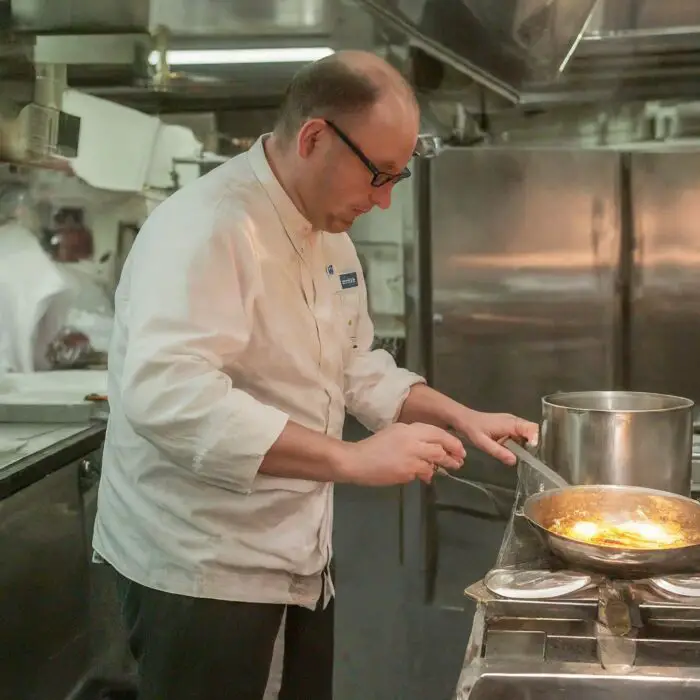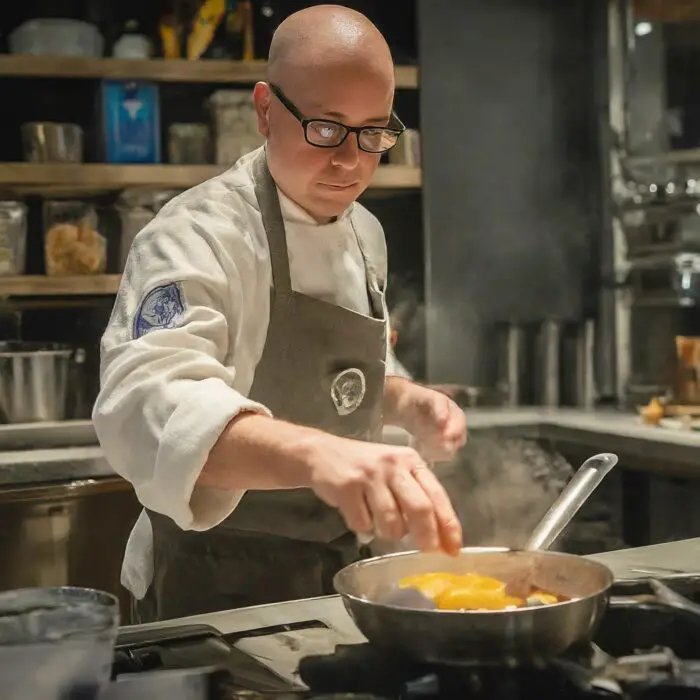
A chef demonstrating his culinary skills.
Overview Of The Cooking Competition | |
| The cooking competition is a thrilling event that brings together passionate chefs from all walks of life to showcase their culinary skills and creativity. Contestants will have the opportunity to compete against each other in a series of challenges that will test their abilities to think on their feet, work under pressure, and create delicious dishes that will impress the judges. | |
| From appetizers to desserts, each round of the competition will push contestants to innovate and bring their A-game to the kitchen. The stakes are high as competitors vie for the coveted title of top chef and the chance to win exciting prizes. With a panel of esteemed judges ready to critique their every move, contestants must bring their best culinary creations to the table in order to stand out from the rest and claim victory in this ultimate test of skill and talent. | |
Rules And Regulations For Participants | |
| Participants must adhere to the following rules and regulations in order to compete in the cooking competition. Each contestant must prepare their dish within the allotted time frame and present it to the judges for evaluation. All ingredients used must be fresh and of high quality, with no pre-packaged or pre-cooked items allowed. Contestants are responsible for bringing their own cooking utensils, pots, pans, and any other necessary equipment. | |
| Plagiarism of recipes is strictly prohibited, and all dishes must be original creations of the participants. Any violations of these rules may result in disqualification from the competition. The judges’ decision is final and binding in all matters related to the competition. Good sportsmanship is expected from all participants throughout the event. | |
Judging Criteria And Prizes | |
| The judging criteria for the cooking competition will be based on several key factors. Taste, creativity, presentation, and overall technique will all be taken into consideration by our panel of expert judges. Each dish will be carefully evaluated to determine which contestant has truly showcased their culinary skills and passion for cooking. The judges will also consider how well each contestant has followed the competition guidelines and incorporated any required ingredients or themes. | |
| As for prizes, the winner of the cooking competition will receive a cash prize, a trophy, and bragging rights as the top chef of the event. In addition to these rewards, the winner may also have the opportunity to showcase their winning dish at a local restaurant or food event, further highlighting their talent in the culinary world. | |
How To Register For The Competition | |
| To register for the cooking competition, aspiring chefs must first visit the official competition website. Here, they will find all the necessary information about the registration process, including deadlines, requirements, and guidelines. Participants will need to fill out an online registration form with their personal details and submit it along with any required documents or fees. Once registered, contestants may be asked to provide a brief bio or description of their culinary background and experience. | |
| This information will help the judges get to know each participant better before the competition begins. After completing the registration process, chefs can start preparing their recipes and perfecting their skills in anticipation of showcasing their talents in front of a panel of esteemed judges and a live audience. |

A chef preparing a dish.
Proper Time Management | |
| Proper time management is crucial in a cooking competition, as contestants are often given limited time to prepare and present their dishes. During these high-pressure situations, it is important for chefs to prioritize tasks and allocate their time wisely. This means having a clear plan of action, knowing how long each step will take, and being able to adapt if things don’t go as planned. | |
| Contestants must also be able to work efficiently under stress, staying focused and organized throughout the competition. Learning how to manage time effectively in a cooking competition can help chefs improve their skills in the kitchen overall, allowing them to tackle complex recipes with ease and confidence. | |
Ingredient Substitutions | |
| One important lesson to learn from a cooking competition is the art of ingredient substitutions. In these high-pressure environments, contestants often have to think on their feet and make quick decisions when faced with missing or unavailable ingredients. Learning how to substitute ingredients can be a valuable skill in everyday cooking as well. It teaches you to be resourceful and adaptable, making the most out of what you have on hand. | |
| Additionally, experimenting with different substitutions can lead to unique flavor combinations and unexpected culinary discoveries. By observing how contestants handle ingredient substitutions in a cooking competition, you can gain insight into how to think creatively and problem-solve in the kitchen, ultimately improving your cooking skills and confidence. | |
Presentation Skills | |
| One important skill that can be learned from a cooking competition is presentation skills. In a cooking competition, not only does the dish need to taste delicious, but it also needs to look visually appealing. Contestants are often judged on the presentation of their dishes, including how they plate the food, the use of garnishes, and overall aesthetic appeal. | |
| Learning how to present dishes in an attractive and appetizing way is a valuable skill that can be applied beyond the competition setting. Whether cooking for friends and family or for a professional setting, having strong presentation skills can elevate a dish and make it more enjoyable for those who are eating it. By paying attention to details such as color, texture, and arrangement on the plate, contestants in cooking competitions can improve their presentation skills and create visually stunning dishes. | |
Handling Pressure And Criticism | |
| Handling Pressure and Criticism: One of the biggest lessons to learn from a cooking competition is how to handle pressure and criticism in a high-stakes environment. Cooking competitions are notorious for their time constraints, unexpected challenges, and harsh critiques from judges. Learning how to stay calm under pressure, think on your feet, and adapt to changing circumstances is a valuable skill that can be applied in many areas of life. | |
| Additionally, receiving feedback and criticism from judges can be tough, but it’s important to take it constructively and use it as an opportunity for growth. Embracing criticism with an open mind and using it as motivation to improve your skills is key to becoming a better cook and competitor. |

